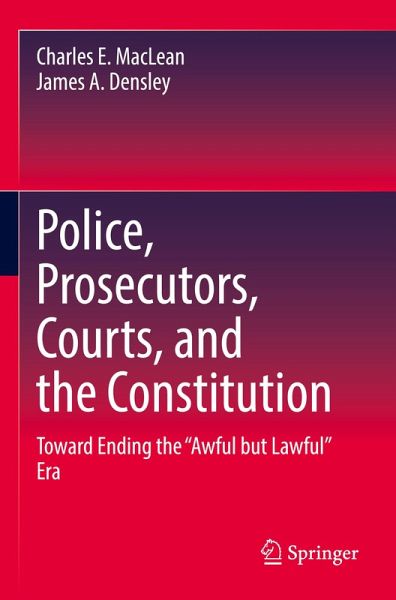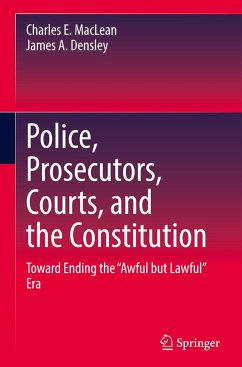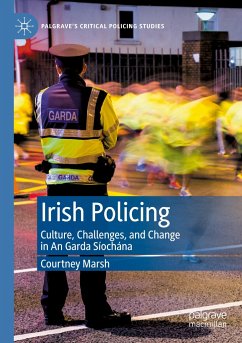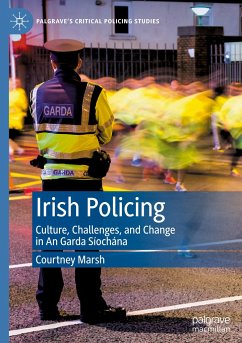
Police, Prosecutors, Courts, and the Constitution
Toward Ending the "Awful but Lawful" Era
Versandkostenfrei!
Versandfertig in 6-10 Tagen
76,99 €
inkl. MwSt.
Weitere Ausgaben:

PAYBACK Punkte
38 °P sammeln!
This book delves into a multitude of practices that, although deemed "lawful" by courts, are undeniably "awful" and unethical. From police officers employing deceit to extract confessions or consent to search, to prosecutors manipulating innocent individuals to relinquish their rights and plead guilty, to excessive force by law enforcement, these practices erode public trust in the criminal legal system and deny justice to those affected.With a critical examination of these deeply flawed tactics, this volume goes beneath the surface to explore their profound impact on the ethical standards and...
This book delves into a multitude of practices that, although deemed "lawful" by courts, are undeniably "awful" and unethical. From police officers employing deceit to extract confessions or consent to search, to prosecutors manipulating innocent individuals to relinquish their rights and plead guilty, to excessive force by law enforcement, these practices erode public trust in the criminal legal system and deny justice to those affected.
With a critical examination of these deeply flawed tactics, this volume goes beneath the surface to explore their profound impact on the ethical standards and emotional health of justice system practitioners. It forcefully argues for a reclaiming of The Social Contract and for peace officers and prosecutors to unequivocally reject these unethical methods and recognize the urgent need for a criminal justice system that truly embodies ethics and fairness.
This work equips police officers, prosecutors, judges, and legislators with invaluable research, enabling them to actively advocate for a transformed system that ethically serves justice for all in the post-George Floyd era.
With a critical examination of these deeply flawed tactics, this volume goes beneath the surface to explore their profound impact on the ethical standards and emotional health of justice system practitioners. It forcefully argues for a reclaiming of The Social Contract and for peace officers and prosecutors to unequivocally reject these unethical methods and recognize the urgent need for a criminal justice system that truly embodies ethics and fairness.
This work equips police officers, prosecutors, judges, and legislators with invaluable research, enabling them to actively advocate for a transformed system that ethically serves justice for all in the post-George Floyd era.












